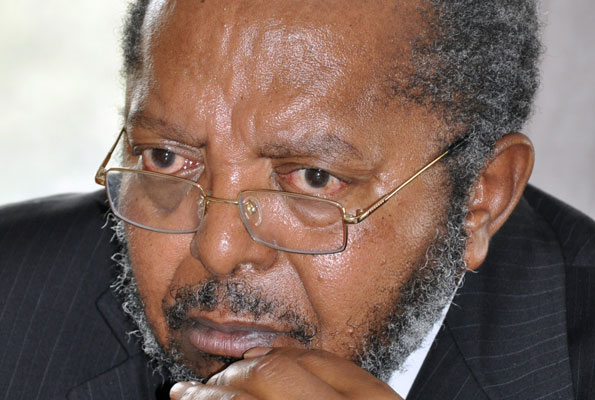‘The greatest danger in times of turbulence is not the turbulence – it is to act with yesterday’s logic’ quoting the words of global futurist Jack Uldrich.
The pandemic has catapulted the world into a future of deep change thus rendering creativity and action more powerful and versatile than knowledge.
Dr. Peter Kimbowa, a strategist and renowned leadership catalyst spoke of the importance of reinvention and creativity in times like this. This was during a webinar organized by dfcu Bank for their investment club business segment.
“It is now time to rethink, review progress, reassess your potential as an Investment Club and realign your priorities but more importantly, is to reimagine the future. This now creates a generation of clubs who don’t survive mainly because of fear but because of creativity. Not surviving because of fear of risk but because of ingenuity. The capacity to liberate your thinking and not limit yourself to a specific scope in terms of investment. This is the time for us to rethink and build resilience,” Kimbowa advised.
Startups and growing businesses comprise 98% of the country’s enterprise, employ 80% of the private sector, contribute 30% of the country’s Gross Domestic Product (GDP) and create 30% of jobs annually. There is currently a decline in incomes and an extraordinary rise in terms of costs thereby creating a mismatch between payables and receivables. The challenge of liquidity is going to become key. “We see a situation where only 15% of SMEs have cash reserves that can take them beyond 3 months and up to 80% SMEs have cash reserves of up to 30 days,” Peter revealed.
This,therefore, raises the issue of sustainability and better investment club strategies. Hybrid investment clubs are the way to go – this means, if a club has 100M, 40% is reserved for internal operations of the club; Members can borrow and return that money. The other 60% is for investments; both long term and short term.
Most investment clubs are right now more than financially stressed. Some of their members have lost jobs or are no longer earing the same income as before. Clubs need to take into account psychosocial support for their members to help them get through this time. The leaders need to constantly engage their members to provide whatever support necessary. Do you have an emergency fund as a club? This could come in handy during this time.
“Our job as investors is to make this new normal work. As an investment club, that means becoming open-minded and curious about things. Members of an investment club cannot afford to see a crisis as a crisis, you should see a crisis as an opportunity, as a declaration of a need to change then crisis will produce an opportunity. Start solving the now by exploring the next and imagining the beyond,” says Kimbowa
Peter went ahead to advise dfcu Bank investment club members that work is no longer where you go, it is what you do wherever you are thus it’s important to separate the workplace and workforce. Migrate to digital but be aware of cybersecurity.





